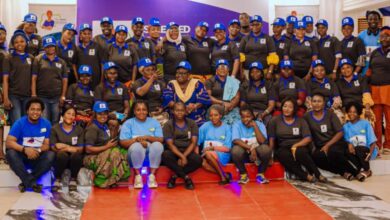‘COVID-19 Melodrama : Journalist as Fall Guys’

By Tope Adaramola
Journalists are basically reporters or media people who connect readers or listeners to events by disseminating information in professional manner on various news media platforms such as radio, teevee, newspapers and most recently online.
Definitely, without news or information dissemination, which is the primary mandate of journalists, our world could only be better imagined. They make it possible for everyone to seat in the comfort of their homes or whatever place of choice to catch a gist of what is happening hundreds and thousands of kilometers away from where they are. As they report stories about steady positive development and issues, so also they report unpleasant happenings.
I recall my early mentor in Journalism had catechized me that bad news was always good news to a journalist, as it often makes more appeal to the readers and viewers. The extent to which this still holds water in the face of the blitz of advocacy for developmental journalism could be the kernel of a discourse for another day.
In the last few months that the Covid-19 pandemic had broken out and hit the world like a thunderbolt, journalists had been one of the most noticeable actors in the novel global melodrama. From Wuhan, China, where journalist had first reported that the pandemic broke out, they (journalists) had sustainably played their roles in reporting and providing platforms for analyzing the pernicious disease which seems to be upsetting global demography and spreading to the nooks and crannies of the world.
The pen professionals have remained the ubiquitous faces we see tracking developments regarding the pandemic, most times at a great risk to their personal lives and their loved ones. In the face of the grinding challenges, one cannot but opine that journalism is a spirit which foists on the practitioner a sense of mysticism or invincibility. Most times they carry on their duties as if they are insulated from the afflictions of other mortals.
Understandably, the urge to meet the mirage, called deadlines keep pumping the reporters’ adrenaline to deliver, come what may. Many had in the course of striving to break news become news themselves as we painfully could reflect on the plight that befell the likes of Dele Giwa, Bagauda Kaltho, Tayo Awotusin, Krees Imodibe, and a host of others
Homing in on the Covid-19 pandemic, it has remained quite saddening that the pen professionals have been treated as the fall guys in the on-going melodrama as they have not merited being classified or reckoned with as first line professionals for whom much consideration should be given to motivate them for better performance.
While there appears a rain of relief package of different sorts from various sources all over the country, journalists have been left in the lurch. Medical professionals that journalists co-work seems to be getting all significant attention as first line professionals for obvious reasons, leaving the pen professionals unattended to as if blood does not run in their own veins too. To compound the collective destinies of the pen professionals is the deeply incapacitated Nigerian Union of Journalists (NUJ) which had often been embroiled in long internecine wars on many fronts.
Ofcourse, not too much should be expected from a body that could not hold a voice for its members in times of peace, talk less in “war time”. The consequence is that journalists often literally come across as sheep without shepherds, left to the mercy of the overarching employers, hostile working environment and unappreciative people whom they serve.
Daily reports of the covid-19 pandemic are replete with horrendous challenges which journalists are facing bordering on security harassment, judicial intimidation, censorship and of course, exposure to contraction of the disease itself. This gory tale is not only peculiar to Nigeria, but appears to be a trend in many African countries. From Tholi Totali Glody, reporter in Alfajari TV in DR Congo, Julius Ocungi of Uganda Radio, and Kufre Carter a sports presenter with XL 106.9 FM in Uyo, Akwa Ibom, in Nigeria; it has been the same tale of security harassment, judicial intimidation, censorship and mob action. The cases of physical violence and intimidation had even been compounded by attempts to restrict access of journalists to certain high level government authorities.
Nigeria and Liberia have devised clever means of denying access of Journalists to President’s office; limiting it to handful of madia outlets that are mostly controlled by government. In Cote Divoire, two journalists were fined 5 million CFA each for reporting that there were two coronavirus cases in Abidjan’s prison which government described as “fake news”. Much as many journalists have also seen the bad effect of fake news, but some are quick to point to the fact that the novelty of the disease, it effects and pattern of spread, even to medical experts, have left a lot to conjectures and speculations which many journalists fall for.
Sadly in Nigeria, as the coronavirus continued to rage, there had not been any strong advocate for the journalists to be protected from the highlighted evil forces. This writer curiously watched the euphoria and praises that followed several concerted efforts to palliate health workers as first line service providers with no mention of journalists. For instance, the insurance industry captured the mood of the times on the news media by disclosing it had set aside life insurance policies worth a whopping sum of N7billion free insurance for health workers while journalists who report the relief are themselves left in the lurch. However, In the face of this neglect, one must give adulation to a few individual media friendly personalities who have been touched by the plight of pen pushers and as such risen to succor them. The truth is that the gesture still remains like dropping a tea spoon of water inside the ocean.
In concluding, I must not remiss in pointing out that journalists are among the foremost stakeholders in this covid-19 emergency and their roles must be fully recognized and motivated by government and well meaning individuals morally and materially. Suffice it to point out that even with the on-going lockdown, the radio and teevee stations are on while newspapers are being published and circulated unfettered. News reports also keep bursting on the social media. There is no doubt that at the backside of those reports are humans who also have flesh and blood that we all have to care for.
Tope Adaramola is a PR professional





